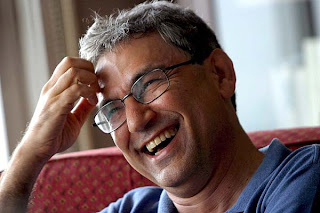
A Black History Sudies, National Heritage funded free screening of Pressure (d. Horace Ové, 1975) took place on Sunday 3 October at the newly restored Phoenix Cinema in East Finchley.
Co-written by Horace Ové and Samuel Selvon (The Lonely Londoners), Pressure is about conflict between the ideas we inherited from our Caribbean parents, raised to believe in Jesus, hard work and the authority of an English education, and the reality we were given by the country of our birth.
Anthony is the young protagonist of the piece; a high achiever in school and a moralistic youthful man, but we watch his prospects unravel as he cannot get a job, his home is raided by the police and he is left protesting in the rain whilst his brother is left to languish in a police cell.
He negotiates office buildings, employers, dimly lit streets, supermarkets and homes. If he doesn’t encounter racism, he encounters Caribbean born comrades with whom he shares an affinity, but not a homeland.
In this film the police are brutal and employers are explicitly racist. Yet still, in 2010, this is a film that has relevance for us today.
For starters, eggs and bacon floating in inches of oil at the start is the pinnacle of English culture the film elects to present to us. As such, Anthony is always being told by his Trinidadian born brother, Colin, to join the Black Power movement and reject English culture, (“what’s wrong with eggs, fish and chips and Gary Glitter?” he protests). He is never presented with much of an alternative. Instead, Anthony is told to eat ‘black food’ and go to black dances. Anthony eventually relents, but the solutions to Anthony’s identity crisis are not solutions that will ensure success and security for him in the long term. Today, popular representations of black culture remains focused on the same, narrow customs.
The naivety of his mother, in believing that faith will get her son a job, and that hard work would eventually be rewarded, is in complete ignorance of the racist cultures Britain was yet to outgrow. When Anthony is failed to be offered any jobs and eventually arrested, she blames his laziness and lack of faith, to his obvious frustration.
The scenes with his caring but strict mother bellowing damnations in their small living room are simultaneously comic and tragic and I wouldn’t begrudge anyone in his position growing up to be angry with the world. It is an interesting thought; that from the optimism of our first generation the second generation have regressed to the realisation that their parents were duped and their children, who have roots that potentially stretch back half a century, could feel less, not more British. All because the lies their grandparents were told have, through prejudice and the black experience, been exposed.
Finally, even with a belief in black power and leadership in the movement, integration is presented as somewhat inevitable. Colin is a leader in his organisation, but he has a white girlfriend. Similarly, at a meeting in their home there are no black women to be seen, apart from a light skinned American. The other females are white, sat on the laps of the conscious bredren in the living room. The desire to fulfil a belief in black power but the ease with which the comrades contradict their message is conveyed by the fact Colin keeps his girlfriend a secret from his anglicised brother.
The black community is depicted as divided between those who have already rejected Englishness and roam the streets stealing food, the members of the movement who preach the closing of ranks, and the ones who go to churches or dances and don’t want to make a fuss. The one thing all the groups have in common is an uncertain future as their principles already seem fragile.
This is first and foremost a great British movie. It’s obviously small budget compromises nothing in its production values; the direction and acting is excellent. For a film that is not afraid to paint an unattractive picture of west London it is filled with subtlety that softens its shocking scenes. It even provokes nostalgia; think Life on Mars with a black people and you get the idea.
In the words of the BFI blurb ‘Pressure remains a key black British film, which helps to demonstrate how modern multi-cultural Britain was shaped.’ I agree with this statement, but its familiar stories also demonstrate how the old mono-culture of Britain can still be seen lurking underneath modern Britain today.












